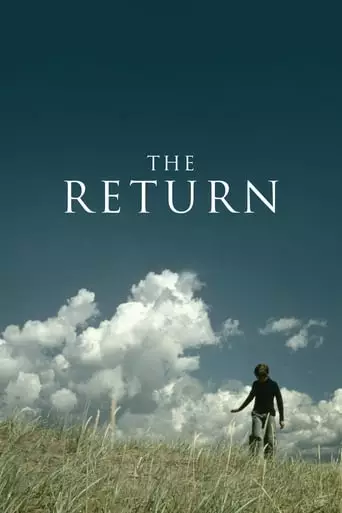The relationships among two pre-pubescent brothers and their estranged father are tested on a trip into the Russian wilderness.
Directed by Andrey Zvyagintsev, The Return is a Russian drama that delves into the complexities of family relationships, particularly focusing on the father-son dynamic. The narrative centers on two brothers, Andrey and Ivan, who are unexpectedly reunited with their estranged father after a 12-year absence. Their father, a stern and enigmatic figure, takes them on a journey to a remote island, where he subjects them to various challenges and tests. The film unfolds as a meditation on authority, trust, and the quest for identity, with the brothers grappling to understand their father’s intentions and their own place within the family. The sparse dialogue and atmospheric cinematography create a haunting and contemplative mood, inviting viewers to explore the unspoken tensions and emotional undercurrents that define the family unit.
Four Main Themes in The Return
- Father-Son Relationships: At its core, The Return examines the complexities of the father-son bond. The film portrays the father’s return as both a source of authority and a catalyst for conflict, highlighting the challenges in understanding and reconciling with paternal figures.
- Trust and Betrayal: The brothers’ journey with their father is marked by a series of tests that challenge their trust in him. The father’s actions, often ambiguous and harsh, lead the brothers to question his motives, exploring themes of betrayal and the fragility of trust within familial relationships.
- Coming-of-Age and Identity: As the brothers navigate their father’s challenges, they undergo a transformation, confronting their fears and desires. This journey serves as a rite of passage, reflecting the universal theme of coming-of-age and the search for personal identity.
- Isolation and Self-Discovery: The film’s setting in a remote, desolate landscape symbolizes the characters’ internal isolation. This environment serves as a backdrop for self-discovery, forcing the characters to confront their innermost fears and desires away from societal influences.
Impact of the Movie
Upon its release, The Return received critical acclaim for its storytelling, direction, and performances. The film won the Golden Lion at the Venice Film Festival, marking a significant achievement in Russian cinema. Critics praised its atmospheric tension and the depth of its character exploration. However, some viewers found its deliberate pacing and minimalistic dialogue challenging. Despite this, the film has been recognized for its artistic merit and its contribution to contemporary cinema.
7 Reasons to Watch The Return
- Masterful Direction and Cinematography:
- Andrey Zvyagintsev’s direction, combined with Mikhail Krichman’s cinematography, creates a visually arresting experience. The film’s stunning landscapes and meticulous framing immerse viewers in its bleak yet beautiful world.
- Compelling Performances:
- The cast delivers exceptional performances, particularly Konstantin Lavronenko as the father and the young actors portraying the brothers. Their portrayals add depth and authenticity to the narrative, making the characters’ struggles palpable.
- Thought-Provoking Themes:
- The film delves into complex themes such as father-son relationships, trust, and identity, offering a nuanced exploration of human nature. Its thematic depth encourages reflection on personal and societal issues.
- Cultural Insight:
- The Return provides a window into Russian society, highlighting the interplay between personal lives and broader societal influences. This cultural perspective enriches the viewer’s understanding of the country’s social fabric.
- Allegorical Depth:
- The film’s narrative and symbolism offer layers of meaning, inviting viewers to interpret the story on multiple levels. This depth enhances its intellectual appeal and encourages repeated viewings.
- Critical Acclaim:
- With a 97% approval rating on Rotten Tomatoes and a score of 85 on Metacritic, The Return has been lauded by critics for its storytelling and thematic richness. Its accolades underscore its significance in contemporary cinema.
- Emotional Resonance:
- The film’s poignant narrative and complex characters evoke a range of emotions, from empathy to despair. Its emotional depth ensures a lasting impact on viewers, making it a memorable cinematic experience.
How Will You Feel After Watching The Return?
After viewing The Return, you may experience a profound sense of melancholy and introspection. The film’s unflinching portrayal of human suffering and moral complexity can evoke feelings of empathy for the characters’ plight. The bleak yet beautiful cinematography may leave you contemplating the stark realities of the world depicted. The film’s allegorical elements might prompt reflections on broader societal issues, leading to a deeper understanding of the complexities of human nature and ethical dilemmas. Overall, The Return offers a thought-provoking and emotionally resonant experience that lingers long after the credits roll.

